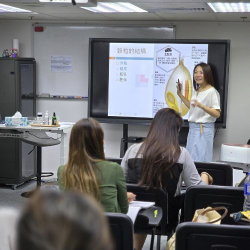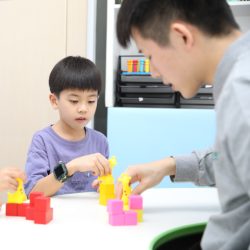For the first time in recorded history, the number of school-age children and adolescents living with obesity has exceeded those who are underweight, according to a recent report from UNICEF. This significant milestone underscores the urgent need for schools, families, and communities to address the growing obesity crisis and its implications for children’s health and learning outcomes.
Key Findings from the UNICEF Report
- Obesity on the Rise: Globally, the prevalence of obesity among children and adolescents has surpassed undernutrition. This marks a pivotal shift, especially in middle- and high-income countries, where access to calorie-dense, low-nutrition foods is a contributing factor.
- Global Statistics:
- Over 340 million children and adolescents aged 5 to 19 are now classified as overweight or obese.
- In contrast, less than 200 million children fall into the underweight category in the same age group.
- Regional Disparities:
- Obesity rates are climbing rapidly in urban areas, where processed foods and sedentary lifestyles dominate.
- Rural and low-income areas still face a dual burden of malnutrition, with some children underweight and others increasingly overweight due to poor-quality diets.
- Dietary Factors: The widespread availability of ultra-processed foods and sugary beverages, coupled with limited access to fresh, nutritious meals, has significantly fueled the obesity epidemic.
- Impact on Education: Obesity in school-age children can lead to:
- Reduced participation in physical activities.
- Social stigma, which may contribute to absenteeism and mental health challenges.
- Higher rates of chronic illnesses, such as type 2 diabetes, which can impact attendance and academic performance.
Implications for K–12 Schools
Schools play a critical role in shaping children’s dietary habits and promoting healthy lifestyles. With the rising rates of obesity, schools must take proactive steps to mitigate these trends and support the well-being of their students.
Recommendations for Schools
- Healthy School Meals:
- Partner with vendors to provide balanced, nutritious meals that prioritise fresh fruits, vegetables, and lean proteins while minimising processed foods and sugary drinks.
- Implement clear nutritional guidelines for school cafeterias.
- Physical Activity Initiatives:
- Increase opportunities for students to engage in daily physical activity through sports, fitness programs, and active play sessions.
- Incorporate movement breaks into classroom routines, particularly for younger students.
- Nutrition Education:
- Introduce age-appropriate lessons on healthy eating habits, portion control, and the dangers of excessive sugar and unhealthy fats.
- Engage families through workshops or newsletters that emphasise the importance of balanced diets at home.
- Monitoring and Support:
- Establish wellness committees that track student health data (e.g., BMI) while respecting privacy.
- Provide access to counseling or health services for children struggling with weight-related challenges.
- Community Engagement:
- Collaborate with local organisations to promote healthier food options in vending machines and school events.
- Advocate for policies that regulate the marketing of unhealthy foods to children.

Why This Matters
Childhood obesity has far-reaching consequences, not only for individual health but also for overall educational outcomes. Students who struggle with obesity are at greater risk of experiencing physical and mental health issues that can hinder their learning and social development. By taking a proactive approach, schools can serve as a powerful force in reversing this trend and ensuring a healthier future for all children.
For more details on the report and its implications, visit: UNICEF – Obesity exceeds underweight for the first time among school-age children and adolescents.
Health and Wellness Products / Services That May Be of Interest:
Get a special discount by quoting code AISLMALL during CHECKOUT.
iLiving: Initial 90-minute Consultation with Supported Healing for Children

iLiving consultation includes health scan of a child who is suffering from chronic physical or mental health challenge and coaching to their caretaker/parent(s).
Llegend – Diploma in Professional Aromatherapy

Llegend’s aromatherapy course covers essential oils, anatomy, and therapeutic applications, combining theory and practice. Accredited by the IFA, it offers exemptions for the UK TQUK Level 4 Certificate. As Hong Kong’s leading college for aromatherapy, it boasts 7 international accreditations.
Therapy Services – 1 on 1 Offline Therapy Service (Speech Language-Pathology/ Occupational Therapy)

Allied Health School Services certified speech-language pathologists and occupational therapists offer personalized therapy for speech, language, motor skills, emotional regulation, and self-care. We use evidence-based practices to support students’ academic and social growth, boosting confidence and promoting inclusive learning environments.
Wellbeing Books Series

Dr. Willard’s books blend mindfulness with practical approaches for families. *Alphabreaths* teaches kids mindfulness through ABC-themed breathing exercises, while *Growing Up Mindful* offers parents and educators tools to help children build resilience, self-awareness, and empathy through mindfulness.










